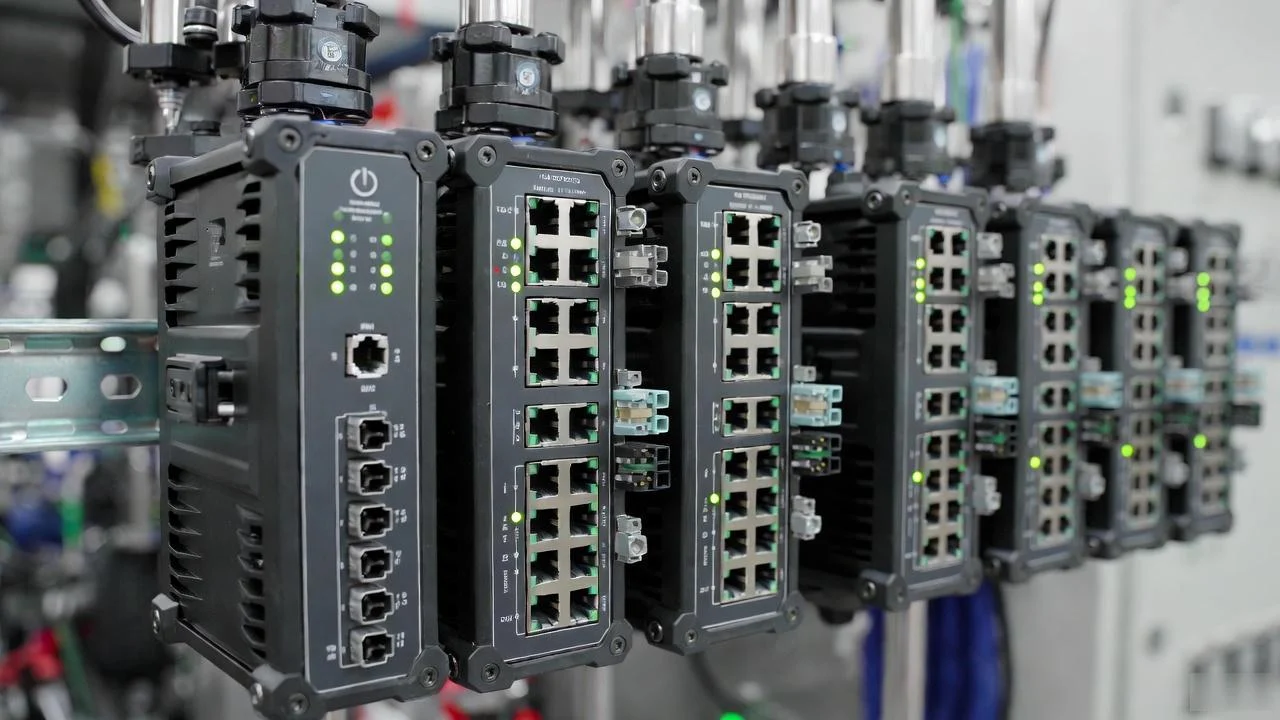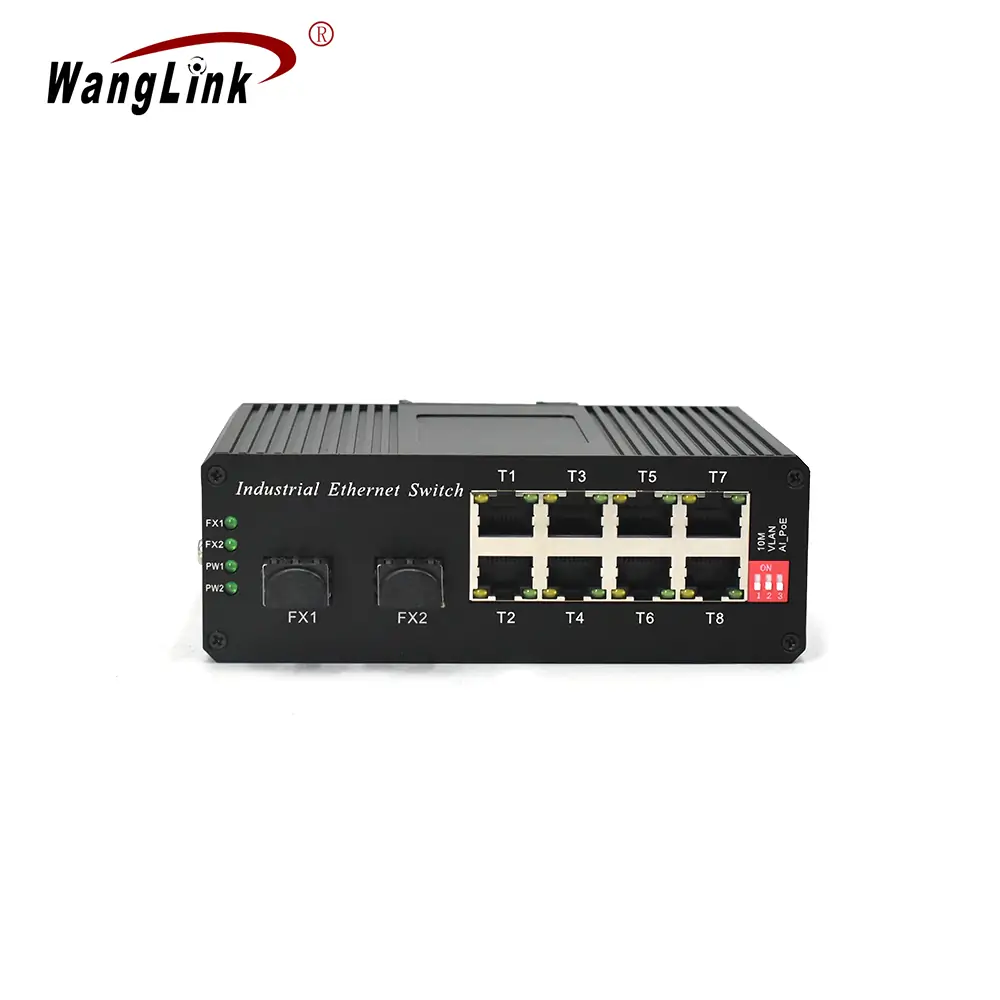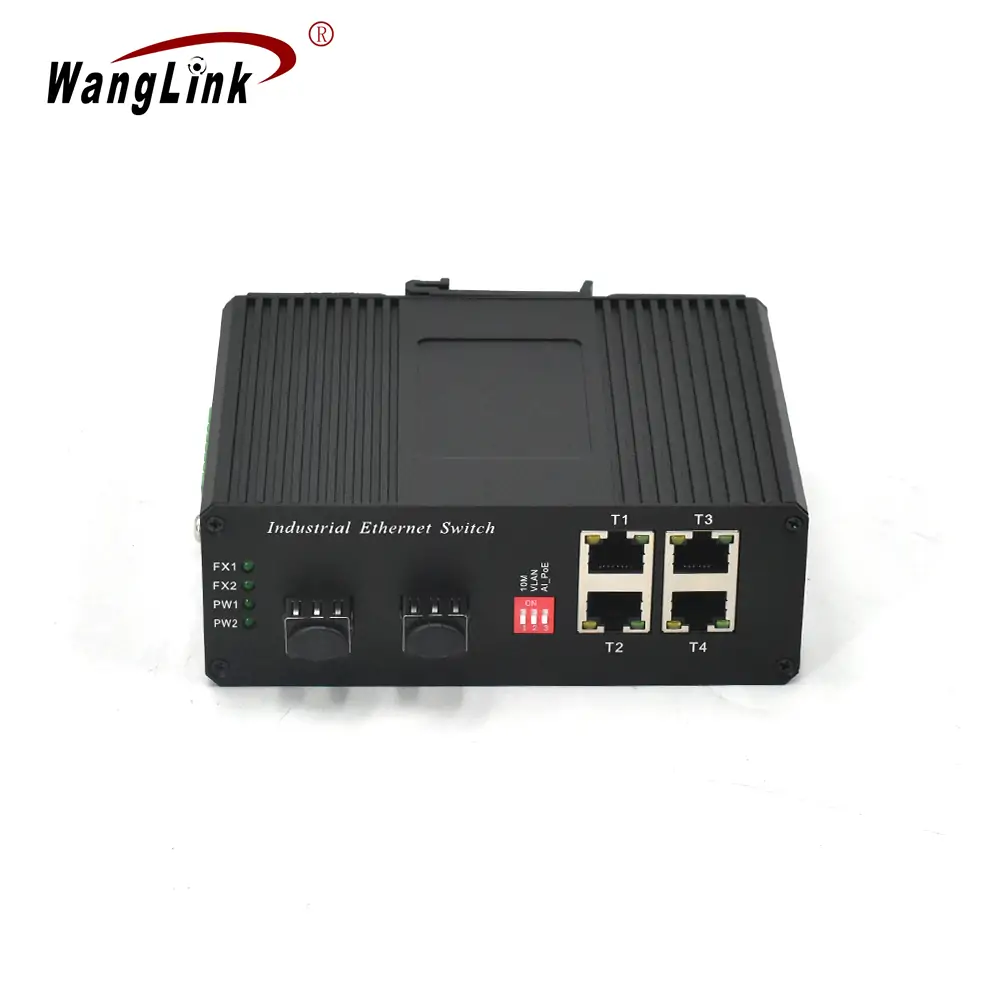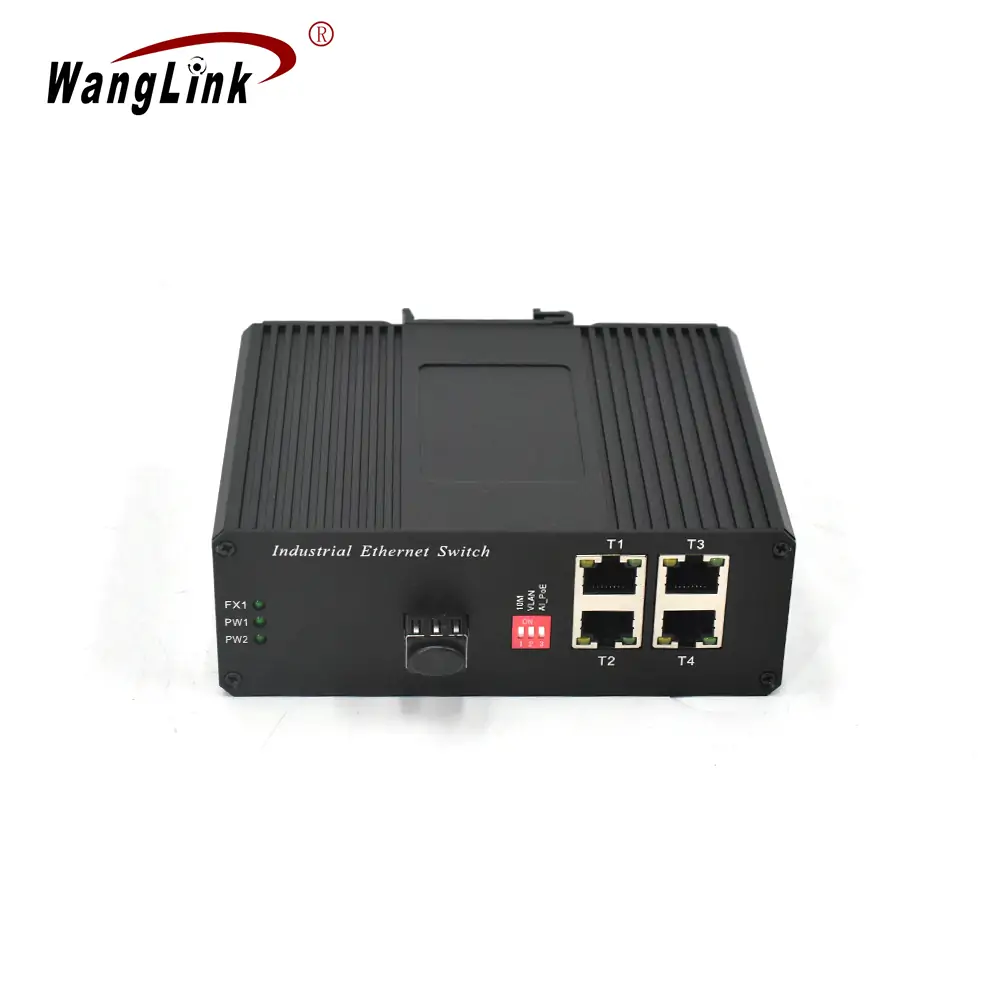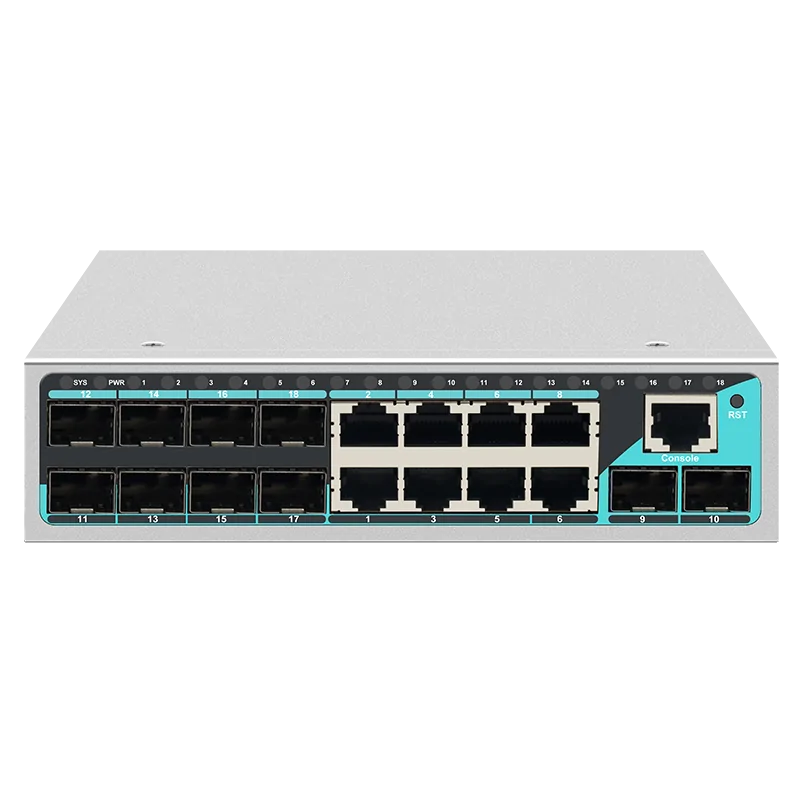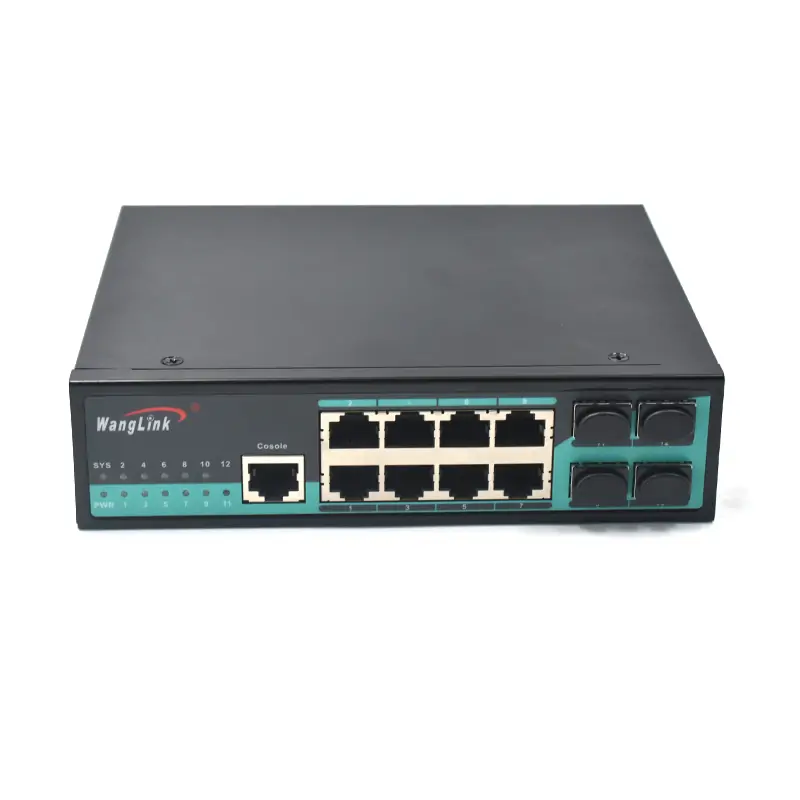Rugged Ethernet Switches: The Ultimate Guide to Industrial-Grade Network Solutions
In today’s interconnected industrial landscape, network reliability is paramount. Standard commercial ethernet switches often fail when exposed to harsh environmental conditions, making rugged ethernet switches an essential component for mission-critical applications. This comprehensive guide explores everything you need to know about industrial-grade networking solutions.
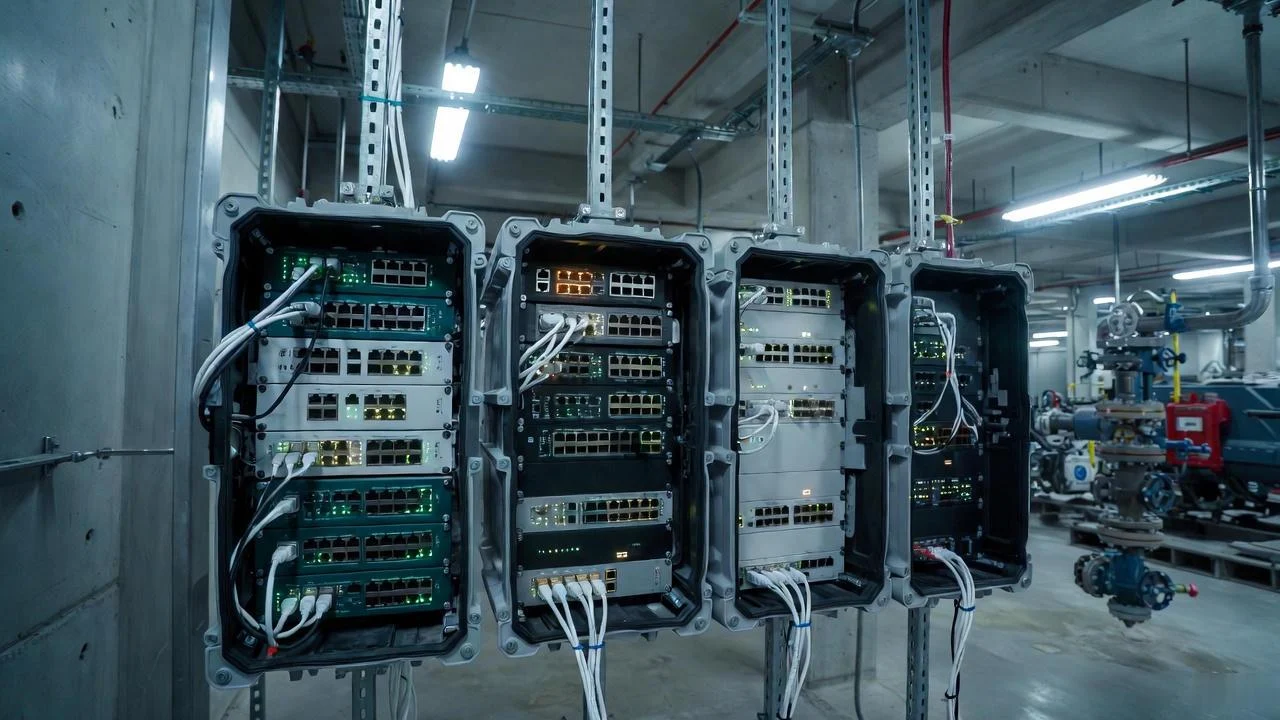
What Are Rugged Ethernet Switches?
Rugged ethernet switches, also known as industrial ethernet switches, are hardened networking devices designed to operate reliably in challenging environments. Unlike their commercial counterparts, these switches are built to withstand extreme temperatures, vibrations, electromagnetic interference, and other harsh conditions commonly found in industrial settings.
Key Characteristics of Industrial Ethernet Switches
- Extended Temperature Range: Operating temperatures from -40°C to +85°C
- Enhanced Durability: Shock and vibration resistance
- EMI/EMC Compliance: Protection against electromagnetic interference
- IP-Rated Enclosures: Dust and water ingress protection
- Redundant Power Options: Multiple power input sources for reliability
Types of Rugged Ethernet Switches
1. Unmanaged Industrial Switches
Unmanaged rugged switches offer plug-and-play functionality without configuration requirements. These devices are ideal for simple network topologies where basic connectivity is needed.
Popular Models:
- ISG410-2005 Unmanaged Industrial Ethernet Switch – 5 Port with 1 Uplink
- ISG401-2005 Unmanaged Gigabit Industrial Switch – 4 Port with SFP options
2. Managed Industrial Switches
Managed rugged ethernet switches provide advanced features like VLAN support, Quality of Service (QoS), and network monitoring capabilities.
Featured Solutions:
- ISG1602M Gigabit Industrial 16 Port Managed Switch – 16 Port with 2 SFP
- ISG804M Gigabit Industrial 8 Port Managed Switch – 8 Port with 4 SFP
3. PoE Industrial Switches
Power over Ethernet (PoE) rugged switches combine data transmission with power delivery, eliminating the need for separate power cables to connected devices.
Technical Specifications Comparison
| Feature | Commercial Switch | Rugged Ethernet Switch |
|---|---|---|
| Operating Temperature | 0°C to +50°C | -40°C to +85°C |
| Humidity Tolerance | 10% to 90% | 5% to 95% |
| Vibration Resistance | Not specified | IEC 60068-2-6 |
| Shock Resistance | Not specified | IEC 60068-2-27 |
| MTBF | 50,000 hours | 200,000+ hours |
| Power Consumption | Standard | Optimized for efficiency |
| Mounting Options | Desktop/Rack | DIN Rail/Wall/Rack |
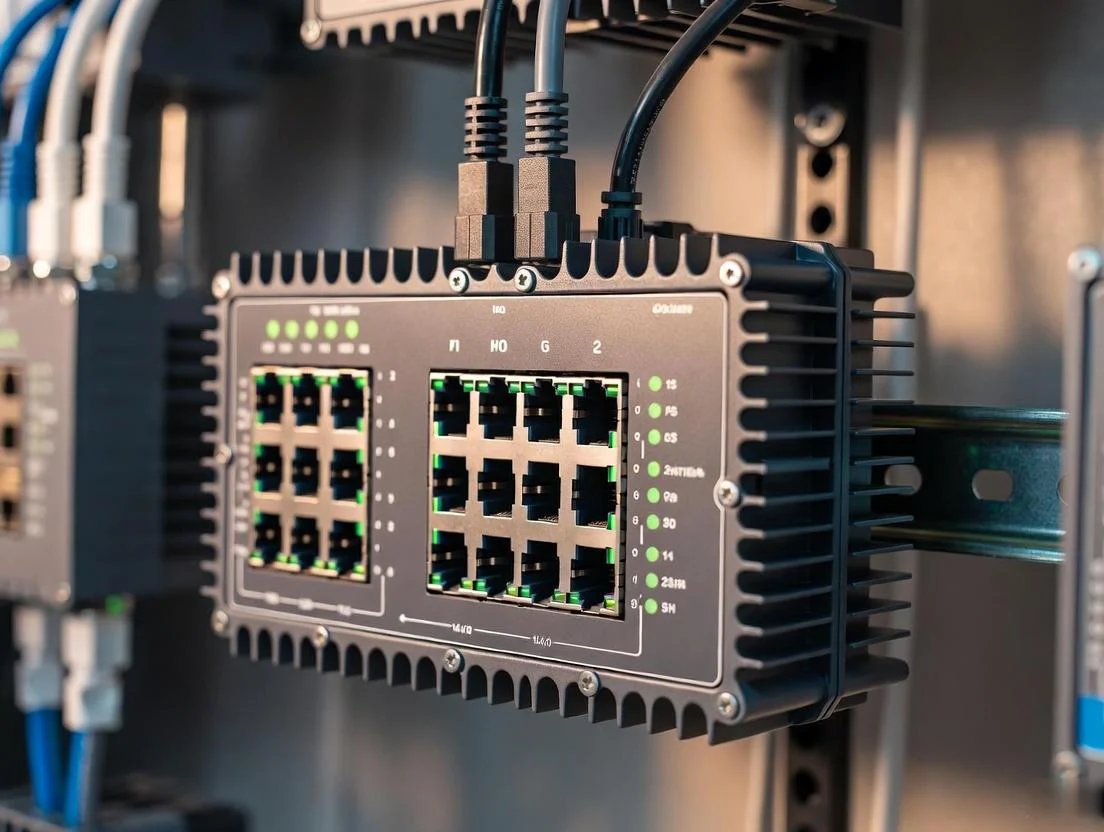
Applications and Use Cases
Manufacturing and Automation
In manufacturing environments, rugged ethernet switches enable reliable communication between:
- Programmable Logic Controllers (PLCs)
- Human Machine Interfaces (HMIs)
- Industrial robots and automation systems
- Quality control and monitoring equipment
Transportation Infrastructure
Railway, maritime, and automotive applications require switches that can handle:
- Constant vibration and movement
- Wide temperature variations
- Electromagnetic interference from motors and engines
Oil and Gas Industry
Hazardous location switches must meet strict safety standards while providing:
- Explosion-proof enclosures
- Intrinsically safe designs
- Corrosion resistance
Smart City Infrastructure
Urban deployments include:
- Traffic management systems
- Surveillance networks
- Environmental monitoring
- Public Wi-Fi infrastructure
Case Study: Manufacturing Plant Network Upgrade
Challenge: A automotive parts manufacturer experienced frequent network outages due to commercial switches failing in their high-temperature, high-vibration environment.
Solution: Implementation of ISG808M Gigabit Industrial switches throughout the production floor.
Results:
- 99.9% network uptime achieved
- 60% reduction in maintenance costs
- Improved production efficiency by 15%
- Zero unplanned downtime in 18 months
Implementation Details
- Assessment Phase: Network audit identified 24 failure points
- Design Phase: Custom topology with redundant paths
- Installation Phase: Phased rollout to minimize disruption
- Testing Phase: Comprehensive stress testing under operational conditions
Selection Criteria for Rugged Ethernet Switches
Environmental Requirements
Consider these factors when selecting industrial switches:
Temperature Range
- Standard: -10°C to +60°C
- Extended: -40°C to +85°C
- Extreme: -40°C to +100°C
Ingress Protection (IP) Ratings
- IP30: Basic protection against solid objects
- IP40: Protection against objects >1mm
- IP65: Dust-tight and water jet protection
- IP67: Dust-tight and temporary immersion protection
Performance Specifications
| Parameter | Entry Level | Mid-Range | High-End |
|---|---|---|---|
| Port Count | 4-8 ports | 8-16 ports | 16-48 ports |
| Data Rate | 10/100 Mbps | Gigabit | 10 Gigabit |
| Switching Capacity | 1.6 Gbps | 32 Gbps | 176 Gbps |
| MAC Address Table | 2K | 8K | 32K |
| VLAN Support | Basic | 256 VLANs | 4K VLANs |
Power Requirements
DC Power Options:
- 12V DC (automotive applications)
- 24V DC (industrial standard)
- 48V DC (telecom applications)
AC Power Options:
- 110-240V AC (universal input)
- Redundant power supplies
- PoE+ capability (up to 30W per port)
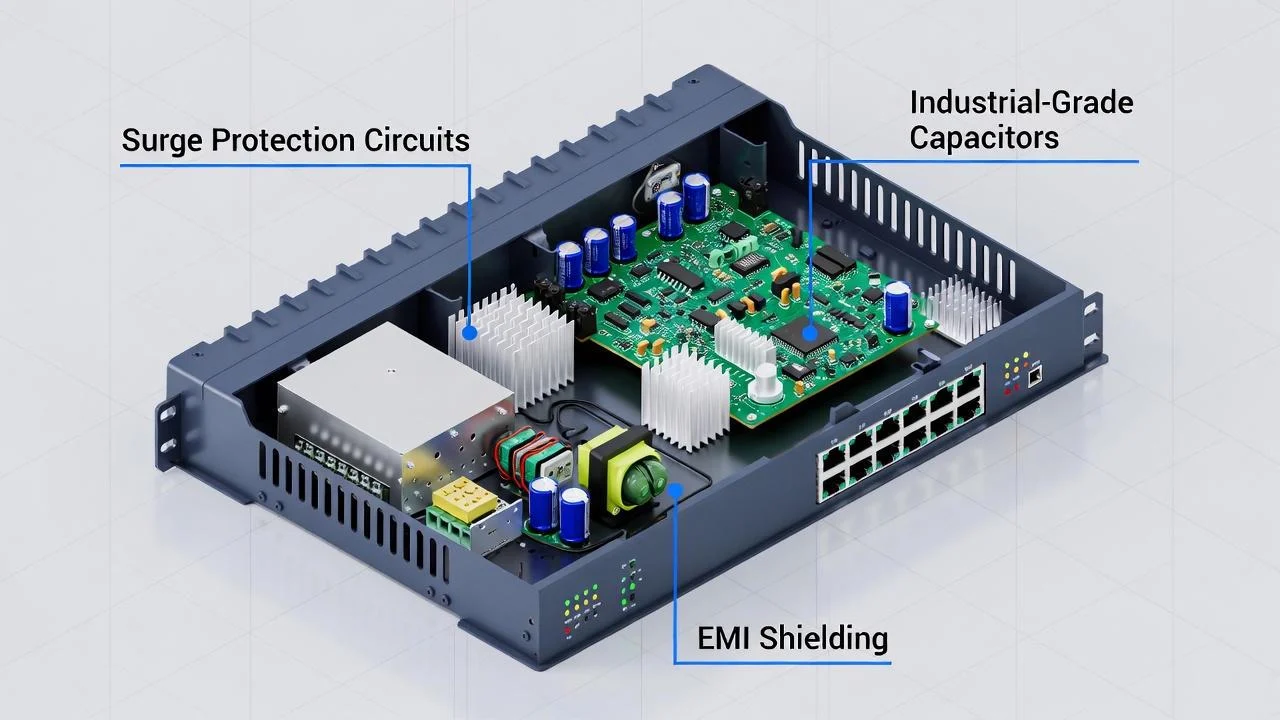
Advanced Features and Technologies
Network Redundancy Protocols
Industrial networks require high availability through redundancy protocols:
Rapid Spanning Tree Protocol (RSTP)
- Sub-second failover times
- Loop prevention
- Automatic path recalculation
Media Redundancy Protocol (MRP)
- Ring topology support
- <200ms recovery time
- Deterministic behavior
Parallel Redundancy Protocol (PRP)
- Zero-time recovery
- Duplicate frame transmission
- Seamless redundancy
Security Features
Modern rugged switches incorporate advanced security measures:
- Access Control Lists (ACLs)
- Port-based authentication (802.1X)
- MAC address filtering
- HTTPS/SSH management
- SNMP v3 encryption
Quality of Service (QoS)
Industrial applications require prioritized traffic handling:
- Traffic Classification: Based on DSCP, CoS, or port
- Queue Management: Multiple priority queues
- Bandwidth Control: Rate limiting and shaping
- Latency Optimization: Real-time traffic prioritization
Installation and Maintenance Best Practices
Mounting Considerations
DIN Rail Mounting
- Standard 35mm DIN rail compatibility
- Proper spacing for heat dissipation
- Secure mechanical connection
Wall Mounting
- Vibration-resistant brackets
- Environmental protection
- Cable management provisions
Preventive Maintenance Schedule
| Interval | Maintenance Task |
|---|---|
| Monthly | Visual inspection of LEDs and connections |
| Quarterly | Firmware update check |
| Semi-annually | Port utilization analysis |
| Annually | Complete system health check |
| Bi-annually | Environmental sensor calibration |
Troubleshooting Common Issues
Power-Related Problems
- Check input voltage levels
- Verify power consumption vs. capacity
- Inspect power connections for corrosion
Network Performance Issues
- Monitor port utilization
- Check for broadcast storms
- Analyze error counters
Environmental Stress Indicators
- Temperature alarms
- Humidity sensors
- Vibration monitoring
Future Trends in Industrial Networking
Industry 4.0 Integration
The evolution toward smart manufacturing drives new requirements:
- Edge Computing: Processing data closer to sources
- AI/ML Integration: Predictive maintenance capabilities
- Cloud Connectivity: Hybrid on-premises/cloud architectures
- Cybersecurity: Enhanced threat protection
Emerging Technologies
Time-Sensitive Networking (TSN)
- Deterministic latency
- Synchronized communication
- Real-time applications
5G Integration
- Wireless backhaul options
- Ultra-low latency
- Massive IoT connectivity
Why Choose Wanglink for Your Rugged Ethernet Switch Needs
As a leading ethernet switch manufacturer with over 13 years of experience, Wanglink offers comprehensive solutions for industrial networking challenges. Our expertise in developing ethernet switch rugged solutions ensures reliable performance in the most demanding environments.
Our Competitive Advantages
Manufacturing Excellence
- ISO 9001 certified production facilities
- Advanced testing laboratories
- Quality assurance at every stage
Customization Capabilities
- One-stop OEM and ODM services
- Custom firmware development
- Tailored hardware configurations
Technical Support
- 24/7 technical assistance
- Comprehensive documentation
- Training and certification programs
Global Reach
- Worldwide distribution network
- Local technical support
- Multilingual customer service
Frequently Asked Questions (FAQ)
Q1: What is the difference between commercial and rugged ethernet switches?
A: Rugged ethernet switches are specifically designed for harsh industrial environments with extended temperature ranges (-40°C to +85°C), enhanced durability against shock and vibration, EMI/EMC compliance, and IP-rated enclosures. Commercial switches typically operate in controlled environments (0°C to +50°C) and lack the robust construction needed for industrial applications.
Q2: How do I determine the right port count for my application?
A: Consider your current device count plus 20-30% growth capacity. Factor in redundancy requirements and future expansion plans. For critical applications, choose switches with more ports than immediately needed to accommodate network growth and redundant connections.
Q3: What power options are available for industrial ethernet switches?
A: Industrial switches typically support multiple power input options including 12V DC, 24V DC, 48V DC, and 110-240V AC. Many models offer redundant power inputs for enhanced reliability. PoE-enabled switches can also power connected devices, eliminating separate power cables.
Q4: How important is managed vs. unmanaged for industrial applications?
A: Managed switches are recommended for complex industrial networks requiring VLAN segmentation, QoS, network monitoring, and security features. Unmanaged switches are suitable for simple point-to-point connections or small networks where plug-and-play operation is sufficient.
Q5: What certifications should I look for in rugged ethernet switches?
A: Key certifications include IEC 61850 for power utility applications, IEEE 1588 for time synchronization, UL/cUL for North American markets, CE marking for European compliance, and FCC certification for electromagnetic compatibility. Hazardous location applications may require ATEX or IECEx certifications.
Q6: How do I ensure proper heat dissipation in enclosed installations?
A: Maintain adequate spacing around switches (minimum 2 inches on all sides), ensure proper ventilation in enclosures, consider ambient temperature ratings, and use switches with appropriate heat dissipation features like heat sinks or fanless designs for sealed environments.
Q7: What is the typical lifespan of a rugged ethernet switch?
A: Quality industrial ethernet switches typically have an MTBF (Mean Time Between Failures) of 200,000+ hours, translating to approximately 20+ years of continuous operation under normal conditions. Actual lifespan depends on environmental conditions, usage patterns, and maintenance practices.
Q8: Can rugged switches be used in hazardous locations?
A: Yes, specialized rugged switches are available for hazardous locations with explosion-proof enclosures, intrinsically safe designs, and certifications like ATEX Zone 1/2 or Class I Division 1/2. These switches meet strict safety standards for use in potentially explosive atmospheres.
For more information about our industrial ethernet switch solutions or to discuss your specific requirements, contact our technical team at [email protected] or WhatsApp: +8613544167258. Visit our products page to explore our complete range of rugged networking solutions, or learn more about our customization capabilities for tailored industrial networking solutions.
